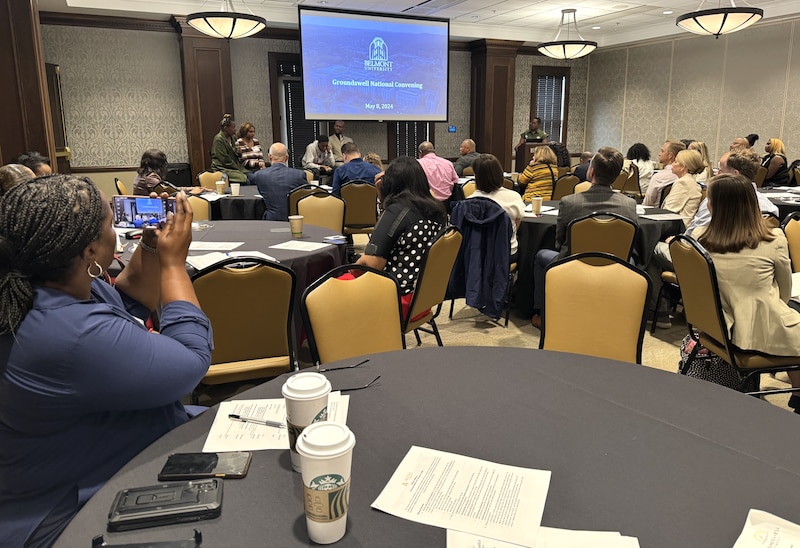Sign up for Chalkbeat Tennessee’s free daily newsletter to keep up with state education policy and Memphis-Shelby County Schools.
Three aspiring charter operators are interested in opening schools in Memphis and Nashville under a new state law aimed at creating options for youth considered at risk of becoming disconnected from traditional public schools.
Labeled “opportunity” charter schools, the campuses would serve middle or high school students. At least 75% of each school’s students would have to be documented as dealing with any of a range of challenges such as juvenile crime, substance abuse, chronic absenteeism, teen pregnancy, getting held back in several grades, dropping out of school, or experiencing abuse or neglect.
The schools likely would put a greater emphasis on career and technical education and be built around trauma-informed and restorative practices and social and emotional learning.
They also would be held to different standards than other public charter schools in Tennessee that must show a certain level of achievement in order to remain open, as well as for traditional public schools that are evaluated under the state’s A-F grading system.
Next week, the state Board of Education is expected to decide exactly what those expectations will be. Tennessee’s education department has proposed exempting opportunity charter schools from receiving a letter grade during their first year of operation. In subsequent years, measurements of success would emphasize continuous enrollment and college and career readiness.
The aspiring operators — two in Memphis and one in Nashville — are among 17 groups that recently submitted letters to state and local education officials indicating their interest in applying by next Feb. 1 to open a charter school for the 2026-27 school year.
But it’s the opportunity charter school category that is new to the mix under the 2024 law sponsored by House Speaker Cameron Sexton of Crossville, a longtime charter advocate, and Sen. Ferrell Haile of Gallatin, both Republicans.
Interested operators for opportunity charter schools are:
- An organization known as Memphis Mentors and led by teacher Carlos Shaw, which is exploring opening Memphis at Work Charter School to emphasize work-based learning in partnership with Memphis-Shelby County Schools;
- A group led by businessman and attorney Anthony Canada that is interested in opening Legacy Day Academy in Memphis’ Frayser neighborhood, starting with grades 6-10, in partnership with Memphis-Shelby County Schools;
- An organization formed by Middle Tennessee charter leader and school administrator Ahmed White that is interested in opening The Rock Academy of Nashville, starting with a ninth grade class and eventually serving as a full high school, in partnership with Metropolitan Nashville Public Schools
None of the three groups expressed interest in opening a residential school, which is allowable under the new law but would be costly to operate. During legislative debates this spring, some critics questioned the wisdom of putting a large number of at-risk students together in a residential setting.
In addition, the state received no interest this year in the possibility of converting an existing charter or traditional public school into an opportunity charter school.
Many of Tennessee’s at-risk youth who have been suspended or expelled from schools for disciplinary problems currently attend alternative education programs run by their local school systems. Those are short-term placements until the students can move back to their traditional public schools.
Opportunity charter schools would provide a long-term option that is designed specifically around the needs of at-risk students.
“The intent of the legislation was to open the door for expert educators and community leaders to find better solutions for kids who are struggling in traditional school models, and that’s what’s happening in both Memphis and Nashville,” said Greg Lippman, CEO of New York-based Groundswell Network, a nonprofit group supporting local work on alternative education models across the nation.

Bobby White, the founder and CEO of Frayser Community Schools charter network and president of Leadership Memphis, expects wider interest in applying in 2026 to open opportunity charter schools in Memphis beginning with the 2027-28 school year. Educators and community leaders need more time, he said, to study the law and the state’s expectations, and to develop their plans.
Last month, White hosted a meeting at a church in the Raleigh-Frayser community as part of his work with Groundswell to identify potential charter leaders and neighborhoods in need in the Memphis area.
“I want people to dream it, vision it, then build it,” White told Chalkbeat on Thursday. “When our first opportunity charter schools open, they should be exemplars in our city. People should be wowed.”
He added: “There absolutely needs to be one school like this in every community that has high crime and high poverty.”
In all, Memphis-Shelby County Schools received the most letters of intent to open charter schools in the 2026-27 school year, followed by districts in Nashville, Hamilton County, Rutherford County, and Jackson.
Typically, about half of groups that submit letters of intent follow through and apply during the same charter cycle.
Marta Aldrich is a senior correspondent and covers the statehouse for Chalkbeat Tennessee. Contact her at maldrich@chalkbeat.org.





